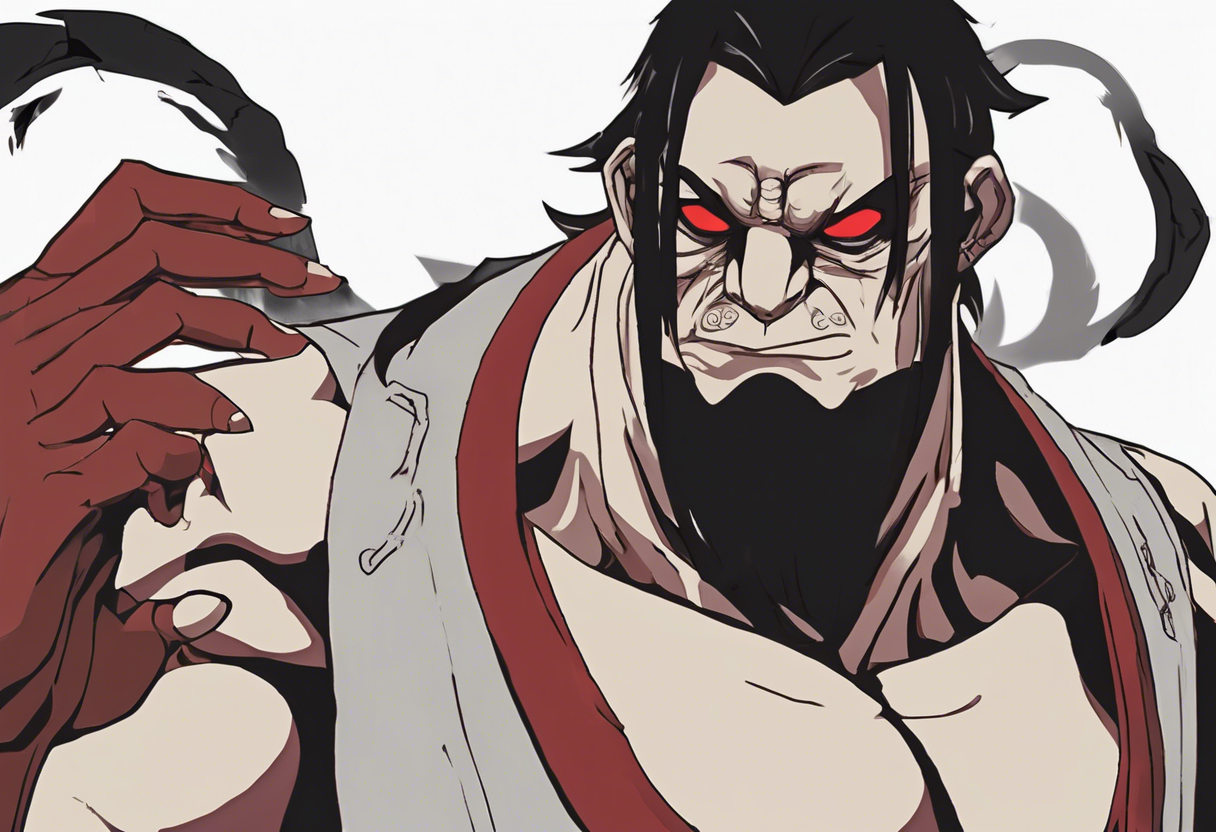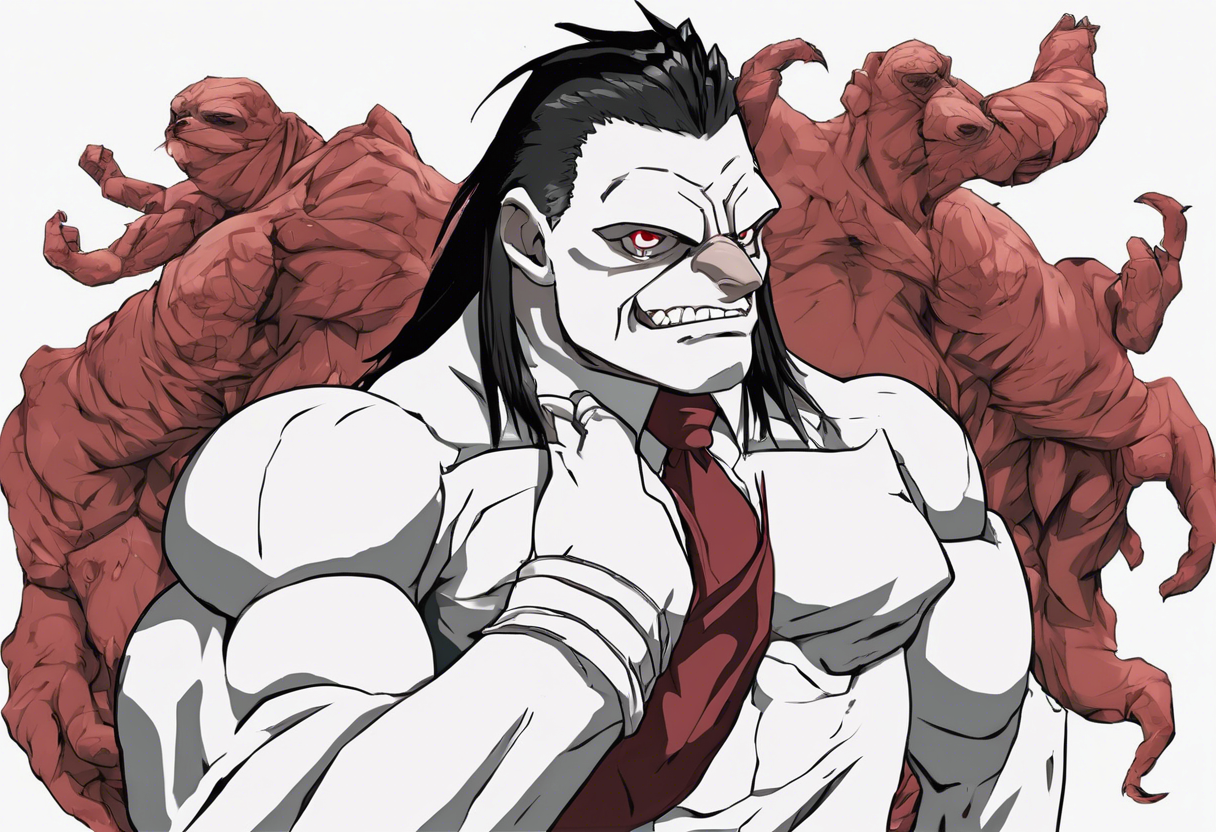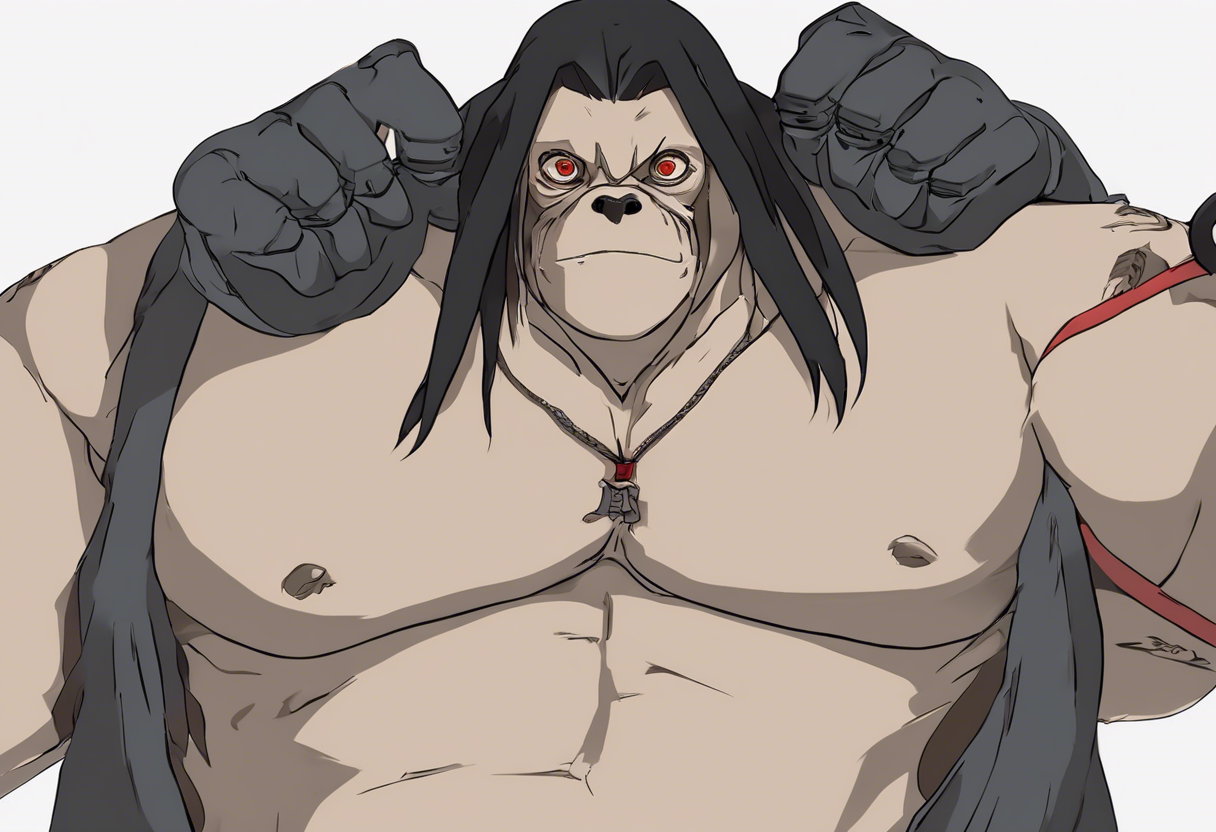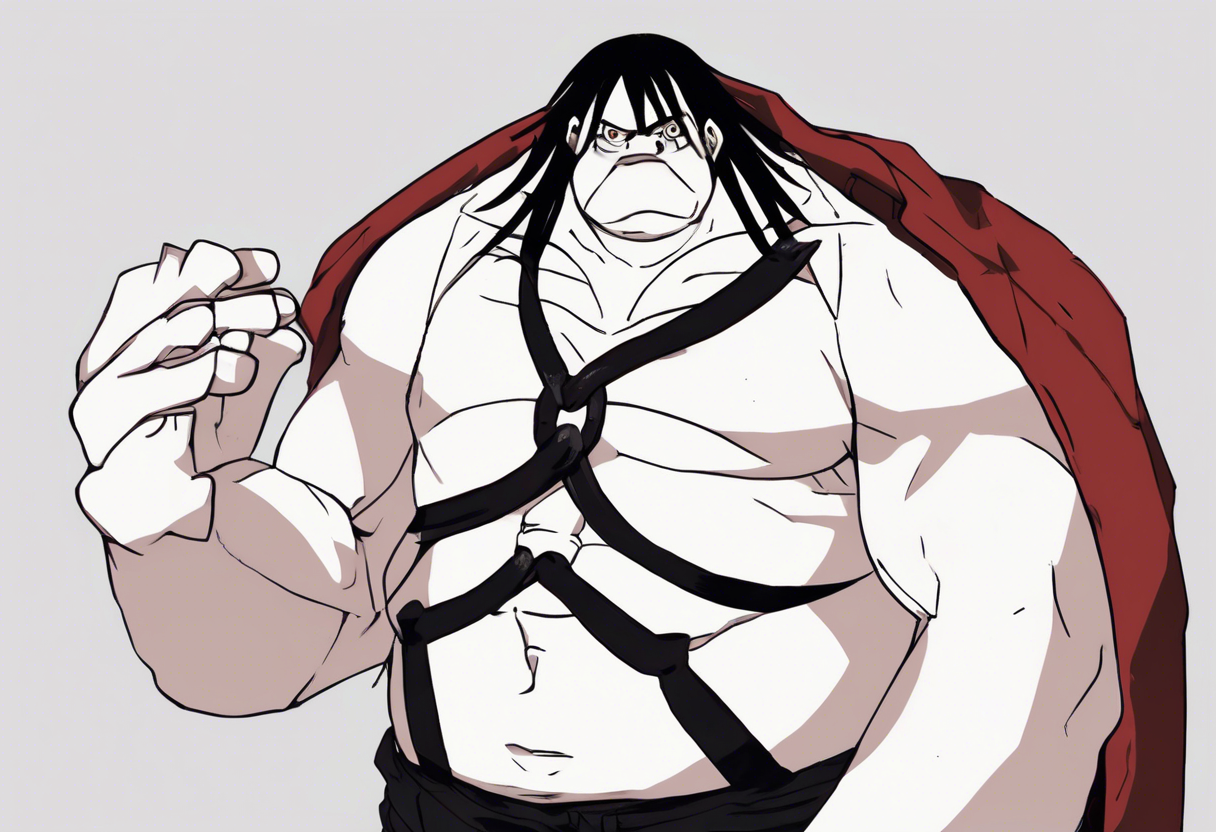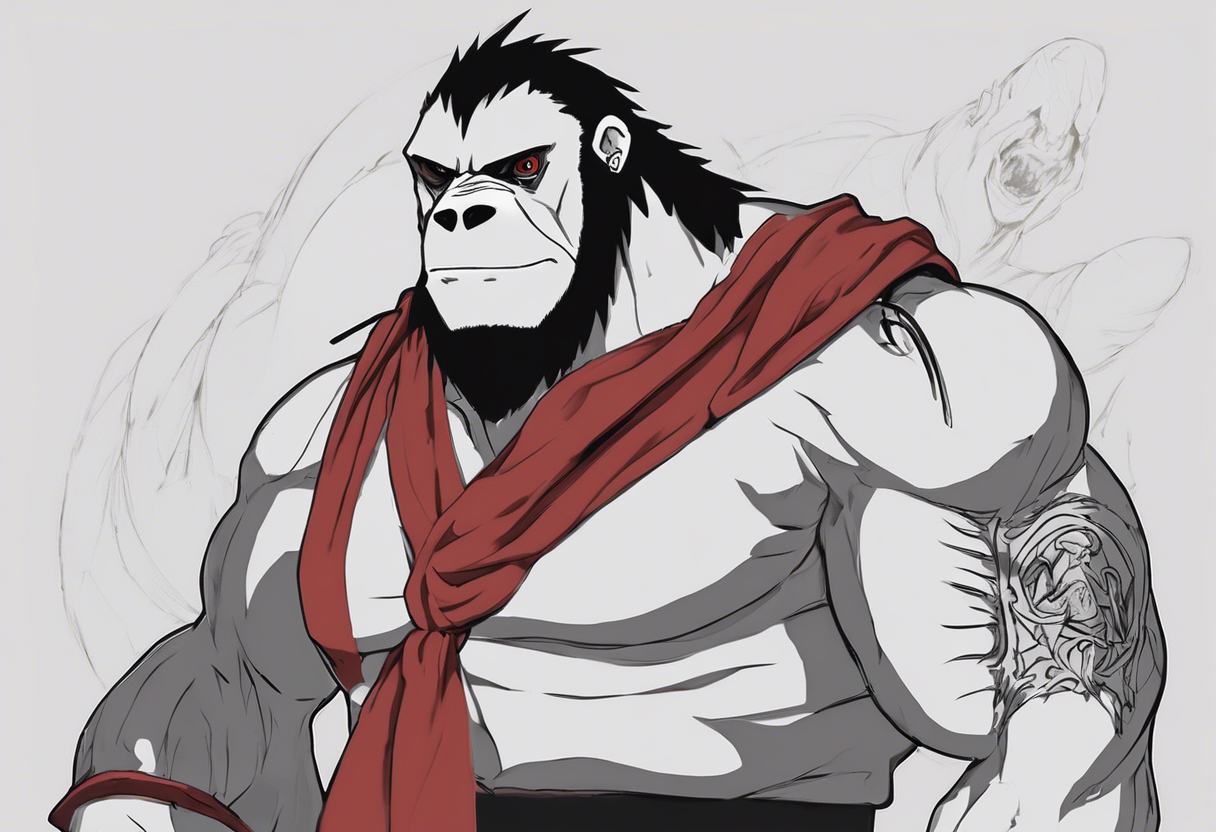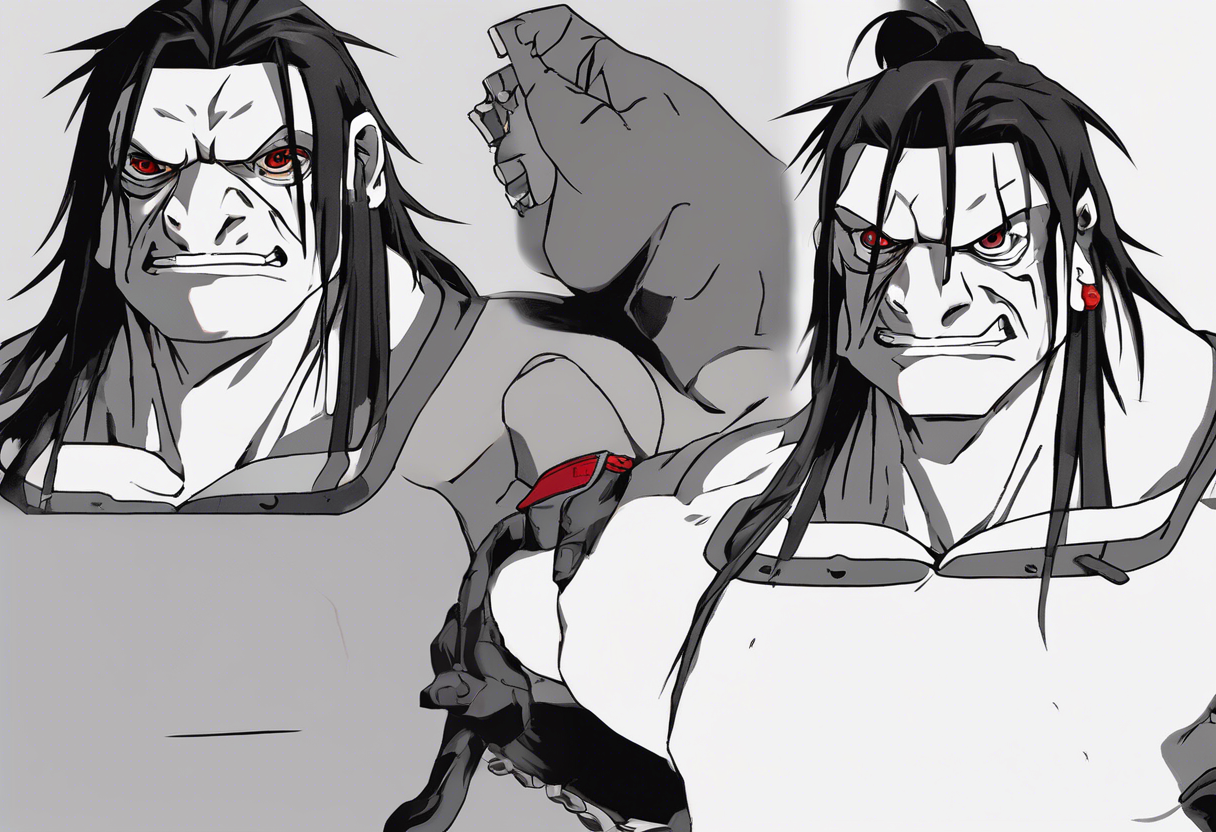Contents
Sloth from Fullmetal Alchemist: Brotherhood
Introduction
Sloth, one of the seven Homunculi in the anime and manga series Fullmetal Alchemist: Brotherhood, is a character created by the primary antagonist, Father. Named after the sin of sloth, this Homunculus embodies the traits of indolence and a deep-seated aversion to effort and hard work. Sloth’s creation is part of Father’s plan to manifest the seven deadly sins as physical beings, each representing a facet of his own personality.
Sloth is depicted as a giant, muscular man with long, stringy black hair, sharp teeth, and a single blank white eye with a scribbly outline. He wears black pants and shoes, and has black straps across his chest, along with chains around his wrists [1][3].
In the narrative, Sloth plays a crucial role in Father’s grand plan to transform the entire country of Amestris into a massive Philosopher’s Stone. His primary task is to dig a gigantic transmutation circle beneath Amestris, a job that reflects his physical strength and endurance but also his inherent laziness and reluctance to exert himself [1][3][5].
Role in the Story
Sloth’s storyline is marked by his relentless yet begrudging work on the transmutation circle. He is introduced as a character who is already engaged in this task, having been at it for at least a hundred years, as indicated by a conversation between Greed and Lust [1][5].
During his journey, Sloth encounters the Elric brothers, Edward and Alphonse, at Briggs Fortress. Despite this interruption, he is allowed to continue his work, eventually completing the circle. Following the completion of his task, Sloth acts as Father’s personal bodyguard and is involved in several key battles, particularly against Major General Olivier Armstrong and her brother Alex Armstrong [1][3][5].
One of the most significant conflicts involving Sloth occurs when he is sent to deal with Olivier Armstrong after she takes one of the corrupted generals of Central hostage. Sloth’s battle with the Armstrong siblings is intense, showcasing his formidable physical strength and regenerative abilities. However, he ultimately meets his demise when he is impaled on a transmuted earth spike and his Philosopher’s Stone is depleted, leading to his disintegration [1][3][5].
Character Analysis
Sloth’s personality is defined by his intense apathy and aversion to effort. He constantly complains about the bother of living and the effort required to complete his tasks. Despite his obedience to Father’s orders, Sloth’s actions are always tinged with a sense of reluctance and a desire to rest and avoid work [1][3][5].
His motivations are simple: to complete his tasks as quickly as possible so he can rest. This motivation is rooted in his embodiment of the sin of sloth, which signifies a wasting of one’s potential. Sloth’s character highlights the theme of wasted potential, as he possesses incredible physical abilities but uses them begrudgingly and without enthusiasm [1][3].
Sloth’s strengths include his enhanced strength, speed, and regenerative abilities, all derived from the Philosopher’s Stone within him. However, his flaws are equally notable; his lack of control over his speed and his general apathy make him a somewhat predictable and blunt instrument in Father’s plans [1][3].
Despite his limited character development compared to other Homunculi, Sloth’s unique personality and traits make him a compelling and relatable character. His constant grumbling and desire to avoid effort resonate with audiences who may feel similarly about their own tasks and responsibilities [2][3].
Themes and Symbolism
Sloth embodies several key themes in Fullmetal Alchemist: Brotherhood. The most obvious is the theme of wasted potential, as Sloth’s incredible abilities are used in a manner that is far from their full potential due to his laziness. This theme is a reflection of the broader narrative’s exploration of how individuals can squander their talents and opportunities through various forms of indolence or lack of motivation.
Another theme is the concept of duty and obedience. Sloth, despite his reluctance, follows Father’s orders diligently, highlighting the tension between personal desire and external obligation. This dynamic is a common thread throughout the series, as characters grapple with their own sense of duty and the consequences of their actions [1][3].
Symbolically, Sloth represents the physical and emotional toll of constant labor and the human desire for rest and respite. His character serves as a contrast to other Homunculi, such as Envy and Greed, who are driven by different motivations and exhibit different forms of suffering and conflict [1][3].
Cultural Impact
Sloth, while not the most popular Homunculus among fans, has a significant cultural impact due to his unique character traits and role in the narrative. His appearance and abilities have been noted for their intriguing contrast between physical strength and mental apathy, making him a memorable character in the series [2][3].
In adaptations and spin-offs, Sloth’s character has been portrayed consistently with his manga and anime counterparts, reinforcing his image as a giant, lumbering figure with a penchant for complaining about his work. This consistency has helped solidify his place in the Fullmetal Alchemist universe and contributed to the series’ overall cultural significance [1][3][5].
Sloth’s influence on popular culture is seen in the way he represents a specific archetype—the reluctant worker. This archetype resonates with audiences who can relate to feeling overworked or undermotivated, making Sloth a character with broader cultural relevance beyond the confines of the anime series [2][3].
Critical Reception
Critics and audiences have perceived Sloth in various ways, often highlighting his unique blend of physical strength and mental lethargy. While some view him as a less developed character compared to other Homunculi, others appreciate his simplicity and the thematic depth he brings to the narrative.
Sloth’s death, in particular, has been noted for its irony and poignancy. Despite being a relentless champion of Father’s will, Sloth’s final moments are marked by a sense of relief and acceptance, underscoring the themes of duty, obedience, and the human desire for rest [1][3][5].
The character’s reception also reflects broader discussions about the series’ handling of its villains. Sloth, as a blunt instrument rather than a cunning adversary, adds diversity to the cast of Homunculi, each of whom embodies different aspects of human nature and moral complexity [2][3].
Legacy
Sloth’s enduring appeal lies in his unique characterization and the themes he represents. As a symbol of wasted potential and the human desire for rest, he continues to resonate with audiences long after the series has concluded.
In contemporary discussions, Sloth’s character serves as a reminder of the importance of motivation and the consequences of squandering one’s talents. His role in Fullmetal Alchemist: Brotherhood has inspired other works and character archetypes, particularly in the realm of anime and manga where complex villains and moral ambiguities are often explored.
Sloth’s legacy is also tied to the broader impact of Fullmetal Alchemist: Brotherhood, a series celebrated for its deep characters, intricate plot, and thematic richness. As part of this narrative tapestry, Sloth contributes to the series’ enduring popularity and influence on the anime genre as a whole [1][3][5].
References
- http://moa.omnimulti.com/Sloth_(Fullmetal_Alchemist:_Brotherhood)
- https://bogleech.com/halloween/hall21-fma
- https://www.cbr.com/fullmetal-alchemist-how-sloth-homunculus-died/
- https://en.wikipedia.org/wiki/List_of_Fullmetal_Alchemist:_Brotherhood_episodes
- https://myanimelist.net/character/15543/Sloth

